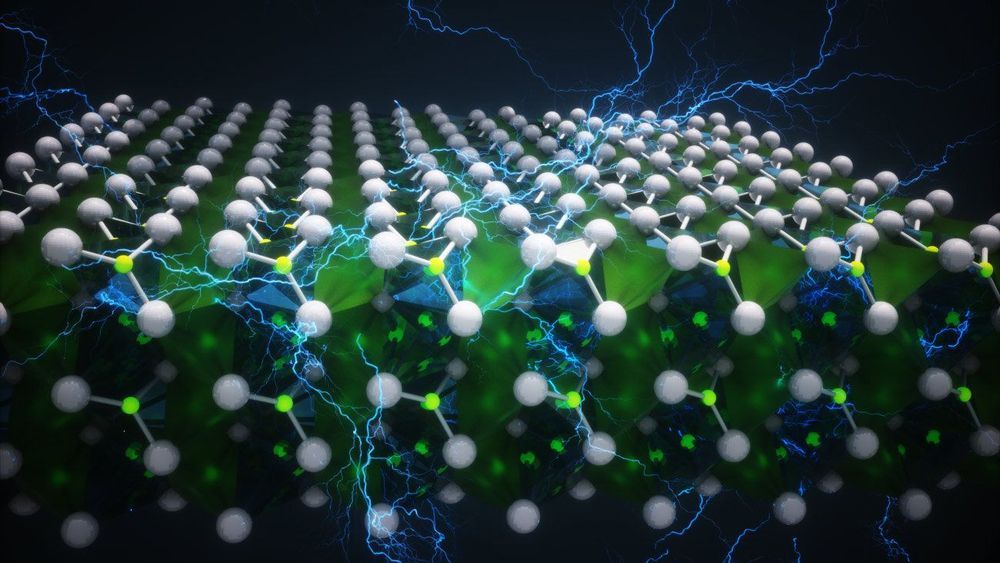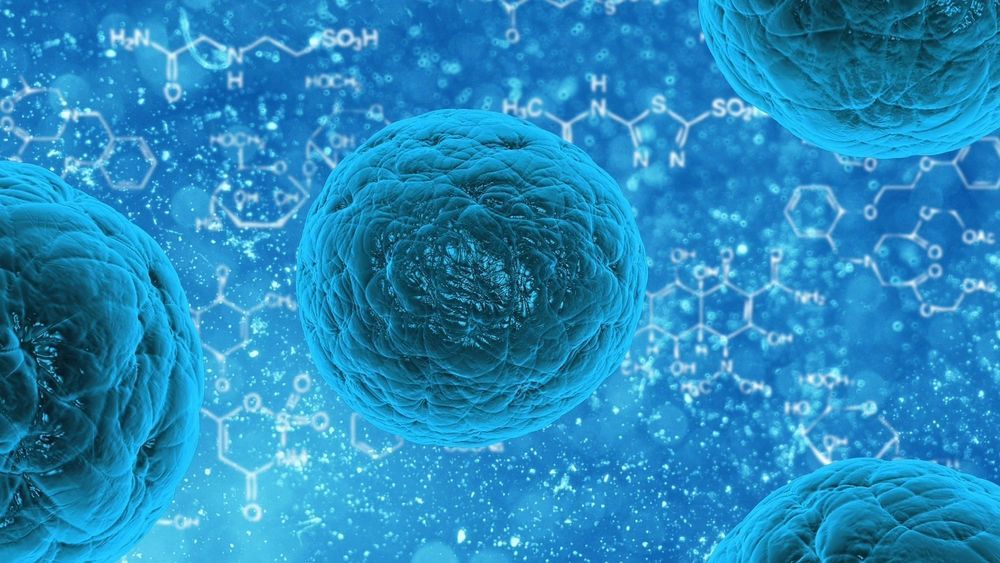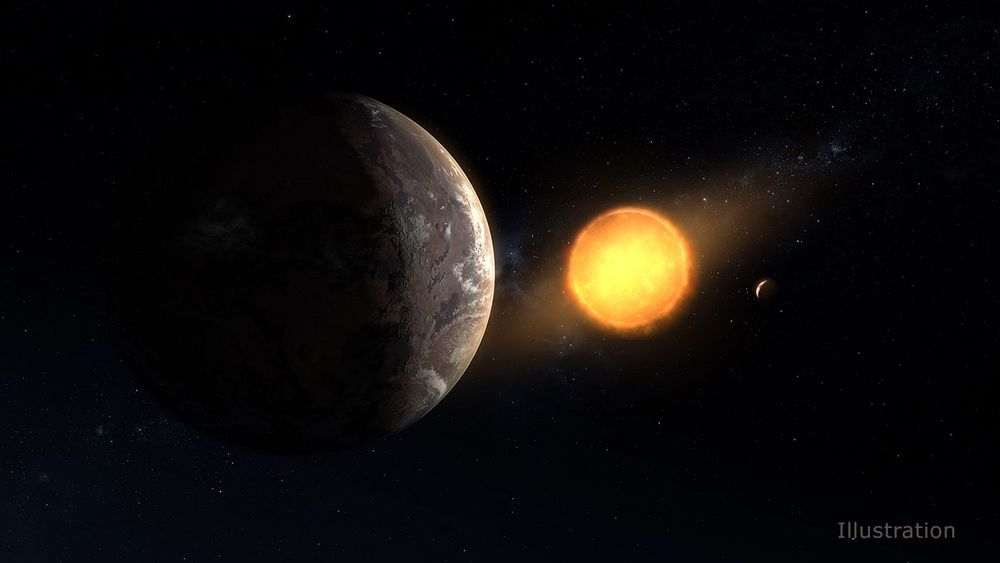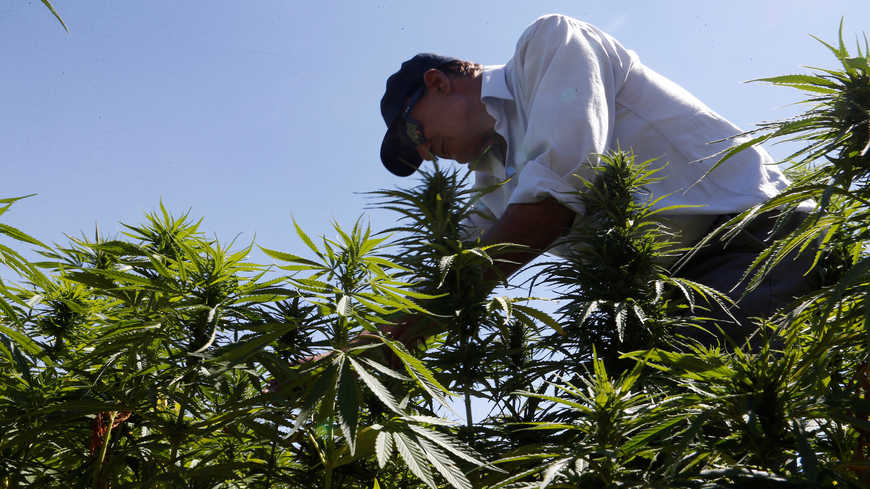The Arecibo Observatory in Puerto Rico captured a radar image of 1998 OR2, which will zoom within 3.9 million miles (6.3 million kilometers) of our planet on April 29.



As electronic devices become progressively smaller, the technology that powers them needs to get smaller and thinner.
One of the key challenges scientists face in developing this technology is finding materials that can perform well at an ultrathin size. But now, Berkeley researchers think they may have the answer.
Led by Sayeef Salahuddin, professor of electrical engineering and computer sciences, and graduate student Suraj Cheema, a team of researchers has managed to grow onto silicon an ultrathin material that demonstrates a unique electrical property called ferroelectricity. The duo’s findings were published in the April 22 issue of Nature.


Capping decades of research, a new study may offer a breakthrough in treating dyskeratosis congenita and other so-called telomere diseases, in which cells age prematurely. Using cells donated by patients with the disease, researchers at the Dana-Farber/Boston Children’s Cancer and Blood Disorders Center identified several small molecules that appear to reverse this cellular aging process. Suneet Agarwal, MD, Ph.D., the study’s senior investigator, hopes at least one of these compounds will advance toward clinical trials. Findings were published April 21 in the journal Cell Stem Cell.
If so, it could be the first treatment for dyskeratosis congenita, or DC, that could reverse all of the disease’s varying effects on the body. The current treatment, bone marrow transplant, is high-risk, and only helps restore the blood system, whereas DC affects multiple organs.
Engineering researchers developed a next-generation miniature lab device that uses magnetic nano-beads to isolate minute bacterial particles that cause diseases. Using this new technology improves how clinicians isolate drug-resistant strains of bacterial infections and difficult-to-detect micro-particles such as those making up Ebola and coronaviruses.
Ke Du and Blanca Lapizco-Encinas, both faculty-researchers in Rochester Institute of Technology’s Kate Gleason College of Engineering, worked with an international team to collaborate on the design of the new system — a microfluidic device, essentially a lab-on-a-chip.
Drug-resistant bacterial infections are causing hundreds of thousands of deaths around the world every year, and this number is continuously increasing. Based on a report from the United Nations, the deaths caused by antibiotics resistance could reach to 10 million annually by 2050, Du explained.

Tesla’s mobile app is one of the key parts of the Tesla ownership experience, and yet its security is lacking an important feature — two-factor authentication.
According to CEO Elon Musk, this will change in the near future.
When asked on Twitter whether there are any updates regarding two-factor authentication for the app, Musk said it’s “coming soon” (via Teslarati).


Despite pushback from Hezbollah, the Lebanese parliament passed legislation Tuesday legalizing cannabis cultivation for medicinal and industrial purposes.

A drug that has shown promising results against coronavirus is going to be tested in four hospitals in Israel as part of a global clinical trial involving around forty clinical centers.
The drug, Selinexor, or XPOVIO as it is currently marketed in the US, has been developed by oncology-focused pharmaceutical company Karyopharm Therapeutics. Co-founded by Israeli scientist Sharon Shacham in 2008, the company is based in the US but maintains a regional office in Israel.
XPOVIO was developed for treating patients with relapsed or refractory multiple myeloma. It is FDA approved for this purpose. However, it has the potential to be a tool to fight the coronavirus, and clinical trials are needed to assess its effectiveness, according to Anat Haas Mizrahi, Karyopharm’s Israel general manager; and Dayana Michel, its senior medical director.
“In our research, we are committed also to develop drugs for additional purposes,” Haas Mizrahi told The Jerusalem Post. “One of the studies was focused on viral diseases, and we tested the drug for several of them. When the coronavirus emerged, we decided to look into our data and information, and we realized that there was an option that could be applicable for treating COVID-19, so we started looking into it.”
About a month ago, the company began to work around the clock on the treatment, realizing that the drug had the potential to disrupt the replication of the virus and to mediate anti-inflammatory effects, including respiratory infections. Tests were carried out on several animal models.

Amazon is partnering with local grocery stores in India to let them sell goods through the company’s ecommerce platform. Under the “Local Shops on Amazon” program, the firm aims to bring small brick and mortar stores online.
The company said the project was in a pilot phase for the last six months with more than 5,000 stores onboard. Now, with the increasing demand for delivered groceries during the coronavirus pandemic, it has decided to formally launch the program. As a part of the launch, the Amazon is pumping ₹10 crores ($1.3 million) into this initiative.
[Read: Google Duo majorly improves low-bandwidth video quality with new codec].